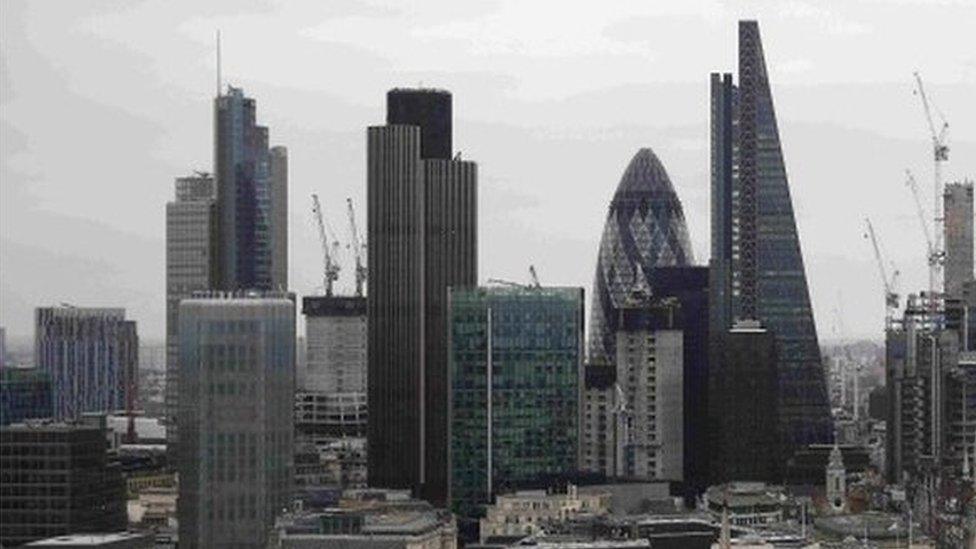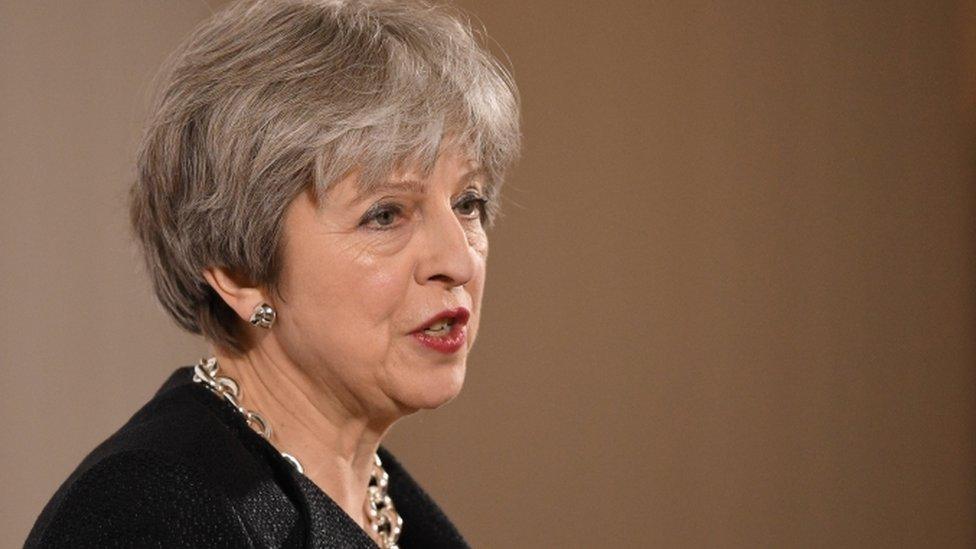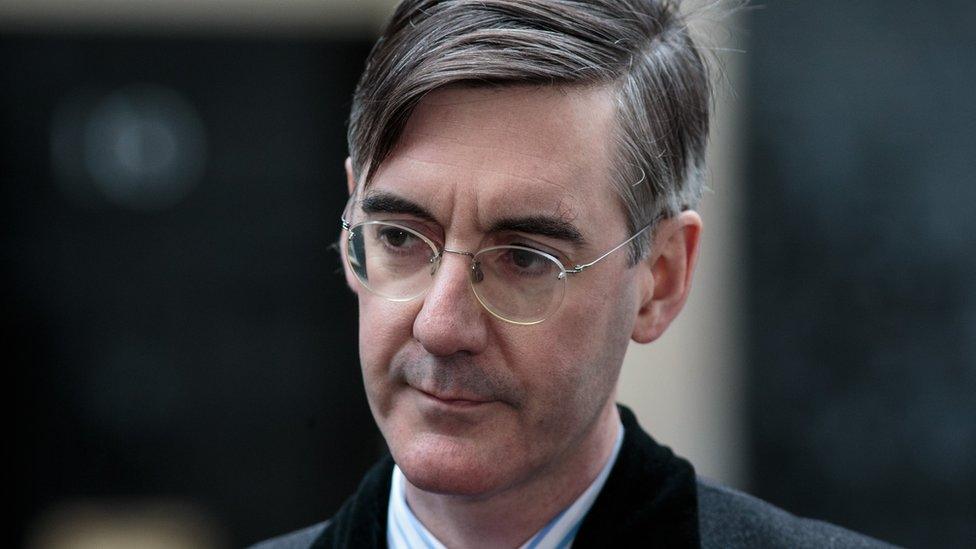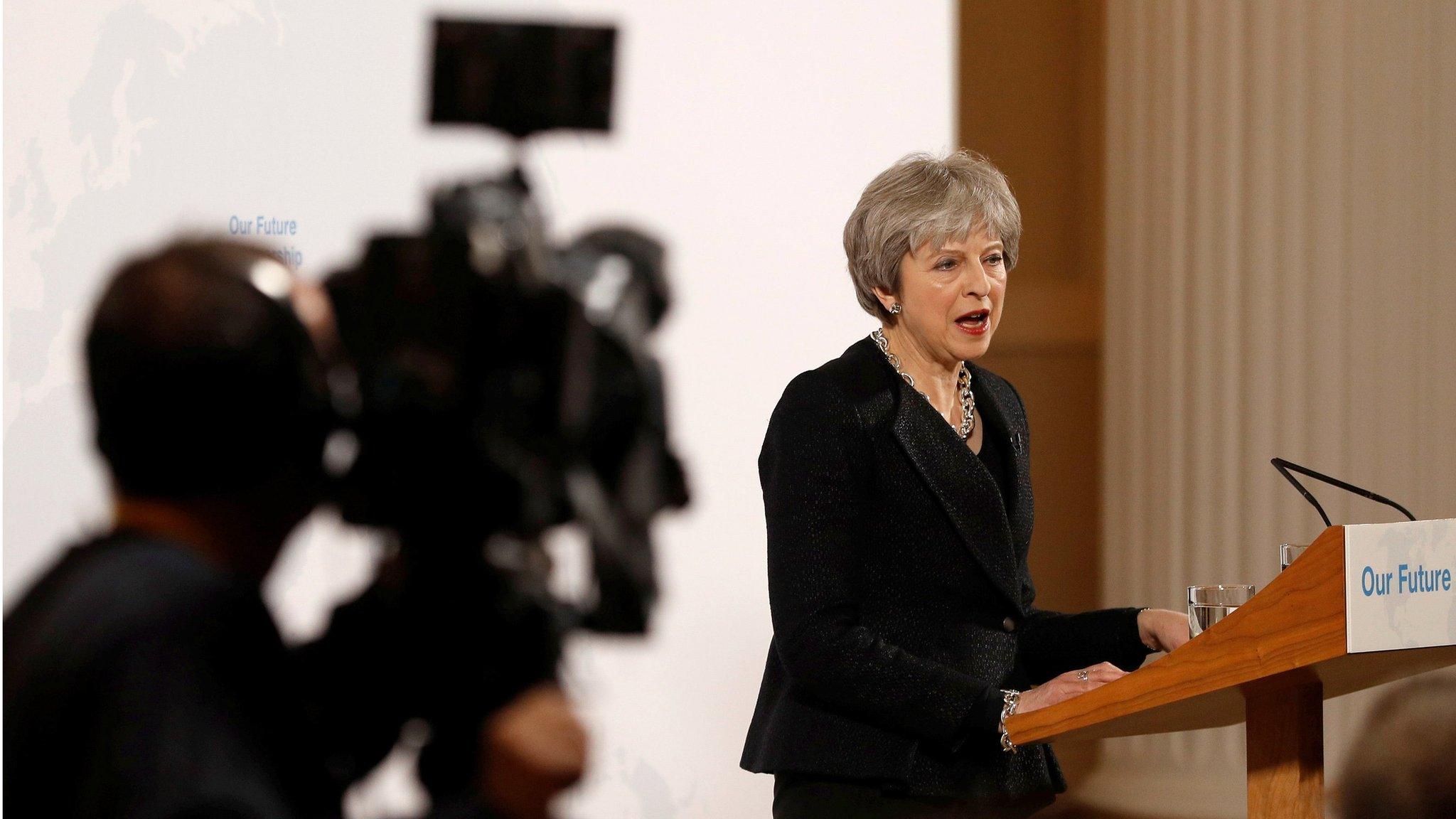Brexit: Theresa May urges EU to buy into 'ambitious' vision
- Published
Theresa May: "Let's actually get on and start the negotiations"
Theresa May has urged the EU to get on with discussing her "ambitious but practical" vision for economic relations with the UK after Brexit.
The prime minister told the BBC's Andrew Marr the "right deal for us will be the right deal for them too".
She said she was confident of a deal while accepting the UK could not expect the same market access in some areas.
But the CBI said there were some "big holes" in the UK's plan and action was needed to stop firms moving.
Conservative MPs have largely welcomed the PM's speech on Friday, in which she set out what she said were "the hard facts" on Brexit and the reality that neither side could have exactly what it wanted from the negotiations.
While the UK was leaving the single market and customs union, she said she envisaged continued close co-operation in many areas after the UK leaves on 29 March 2019 - including remaining a member of medicines, aviation and chemicals agencies.
She told Andrew Marr it was important to be "straight" with people that life would be different outside the EU but she believed both sides wanted the same overall outcome.
"It was a vision that was ambitious but was also practically based and therefore a credible vision," she said.
"The EU themselves have said they want an ambitious and wide-ranging arrangement with us in the future... If we look at our future prosperity and in the other 27 countries, the right deal for us will be the right deal for them too."
'Starting point'
While the UK would have the right to diverge from EU rules in some areas, she said it would "make sense" for the UK to keep exactly the same standards in others or achieve the same outcomes by different means.
Financial services, she insisted, would be a key part of what she hopes will be the most comprehensive free trade deal ever struck.

Financial services from the City of London are a key export to the EU
But she said arrangements would have to change once the UK left the single market, such as the end of passporting which allows firms based in the City of London to operate across the EU without the need for licences in individual countries
"If we were to accept passporting, we would just be a rule-taker," she said. "We would have to abide by their rules which were being set elsewhere.
"Given the importance of financial stability, we can't just take the same rules without any say in them."
Asked what she would do if she lost a Commons vote on remaining in the customs union - with some Tory MPs set to side with Labour over the issue - she said she would be making her case to Parliament.
"What I have set out in terms of a future customs arrangement with the EU, I think, is actually what most people want to see," she said.
A customs deal that ensured tariff-free trade and the most "frictionless" passage of goods was in the interests of both sides, she said.
'Staying aligned'
But Carolyn Fairbairn, who heads the CBI employers' group, said thousands of manufacturing businesses would lose out from being outside of the customs union.
"Some of our sectors, automotive, and others, need to stay aligned," she told Pienaar's Politics on BBC Radio 5Live. "We would actually argue that many sectors want to stay aligned.
"We do not have any that say they want to diverge greatly."
Banks needed an alternative to passporting, she said, and the UK's outline proposals "need to be followed through very quickly because financial services firms are moving now".
"The speech on Friday was a step forward," she added. "But there are some big holes still. There is no answer still on how we can get frictionless trade."
Former Conservative leader Iain Duncan Smith said Mrs May had set out "common sense and practical solutions" to many of the concerns that the EU had.
But former EU Commissioner Lord Mandelson said the EU would not "in a month of Sundays" accept a trade relationship based on mutual recognition of standards and the freedom to diverge where the UK wanted to.
"Theresa May is dancing on the head of a pin that simply does not exit and it will be painful for the country as a result," the former Labour cabinet minister told Andrew Marr.
- Published2 March 2018

- Published3 March 2018

- Published2 March 2018
